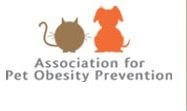
I am very excited to be speaking as part of the “How to be Your Dog’s Best Friend” panel at the DC West End Public Library tomorrow evening. I have posted a preview of the topics I plan on covering, each one of these is a vital component of wellness care for your dog.
1. Vaccine recommendations
It is very important to make sure your pets are up to date on their vaccines. I will discuss the vaccines that the American Veterinary Medical Association recommends that all pets receive; these are called core vaccines as well as a few non-core vaccines I think are important.
All pets should be up to date on their rabies vaccines. This is part of the law for good reason, rabies is just about 100% fatal and not protecting your pet against it puts everyone in your family at risk. All dogs should also be vaccinated with a distemper/parvo/hepatitis combination vaccine. This group of infectious diseases can cause gastrointestinal, respiratory and neurologic problems that are often fatal.

So let’s talk about some of the vaccines that people may not know much about. These are not considered to be necessary for every animal but based on lifestyle instead. Leptospirosis is a bacteria transmitted via the urine of an infected animal, most commonly wildlife such as rats, opossums and raccoons. These animals urinate in standing water or moist soil, your dog then comes along and drinks the contaminated water and contracts the disease
Though Lepto can be treated with antibiotics, if the infection is not caught early enough it can permanently damage the kidneys and/or liver, resulting in organ failure. In some cases, the disease is too advanced by the time we catch it and ends up being fatal.
If you are putting your dog in a kennel or taking her to the groomers it is usually required that your dog be vaccinated against “kennel cough”. Kennel cough is a collective term for a highly contagious group of viruses and bacteria that cause irritation in the upper respiratory tract. It is important to realize that the vaccine only protects against the Bordetella bacteria, one of the many infectious agents that can cause “kennel cough”. If your dog is exposed to one of the many other viruses or bacteria that cause upper respiratory symptoms they can still get sick even with the vaccine. In addition even if a vaccinated animal is exposed to the Bordetella bacteria the vaccines does not prevent disease, it will only reduce the severity of clinical signs.
2. The importance of spaying or neutering your pet
I cannot stress this enough. In my opinion, spaying or neutering is the single best thing you can do, not only for your own dog but also for the millions of homeless animals living in shelters. Along with eliminating the chances for many types of cancer developing, spaying and neutering can prevent many behavior issues. I have said it before and I will say it again: female dogs in heat are messy and it is always embarrassing to have your male dog humping someone’s leg.

3. Heartworm and flea/tick prevention once a month every month
Heartworm disease is a parasitic infection transmitted when an infected mosquito bites your dog. While it’s true that infected dogs can be treated, the treatment itself is very dangerous—and can even be fatal. Left untreated, heartworm disease will kill a dog.

Protecting your dogs against fleas and ticks is important as well. Tick borne infections such as Lyme disease, Erlichia and Rocky Mountain Spotted Fever are transmitted when an infected tick bites your dog. The best way to ward these infections off is with topical flea and tick preventatives like Frontline, Advantix, Revolution, or Advantage Multi. In a temperate climate like ours, these should be applied once a month, every month.
Fleas can be extremely itching and irritating to both you and your pets. Some animals are allergic to fleas and one bite can lead to a significant skin infection. Once a flea infestation invades your home it can be very difficult to clear it out. The best bet is to prevent that from happening by applying the same topical medications that protect against ticks.
Luckily, prevention is easy: just a pill and a topical medication once a month. If only everything were that simple.
4. Avoiding obesity

The Association for Pet Obesity Prevention estimates that 42% of dogs and 53% of cats in America are overweight. What’s worse is that an additional 10% of dogs and 19% of cats are considered obese. This means that over 50% of dogs and nearly 75% of cats are at increased risk for diseases that may be preventable. And if that’s not enough to get you motivated, consider this: one study found that dogs kept at a healthy
weight live on average two years longer than their overweight counterparts!
The best strategy for keeping your pet slim is to prevent weight gain in the first place. Never free feed. Instead, always measure out the amount of food you offer your pet. Also try to limit the treats you give to 10% of your pet’s diet. Feeding table scraps is strongly frowned upon. Give too many table scraps and your dog may end up with diarrhea or pancreatitis which can result in a hospital stay. Your pets already love you unconditionally; giving them treats doesn’t make them love you more.

5. Dental disease
Dental disease is one of the most common disorders diagnosed on wellness exams. It is estimated that 80% of dogs and 70% of cats over the age of 3 year old suffer from some degree of periodontal disease.
While a dental cleaning results in whiter teeth and fresh breath, the main benefit is to your pet’s overall health. Consider this: every time your pet chews bacteria is showered into the bloodstream. This then lodges in the kidneys, liver, lungs and heart causing damage and disease. In addition, open fractures, tooth root abscesses and worn teeth are painful and can act as a constant source of discomfort for your pet.
Rather than wait for a problem to develop, it is best to perform a dental cleaning when only mild gingivitis and/or tartar are present. This will maintain good dental health and prevent disease before it becomes a problem, which results in saving you money and more importantly keeping your pet as healthy as possible.
I realize a dental cleaning is not only expensive but it can be scary to put your pet under anesthesia. While anesthesia is daunting, at Friendship we do everything we can to make it as safe as possible with aggressive monitoring while your pet is under anesthesia. At Friendship we are convinced that the low risk of anesthetic complications is far outweighed by the benefits of good dental health. After your dental cleaning we will work with you to keep your pets teeth healthy and prevent tartar buildup. Schedule a dental cleaning and start enjoying those doggie kisses again.








No comments:
Post a Comment